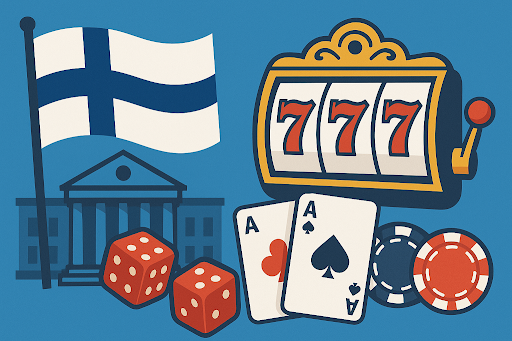Finland’s Proposed Gambling Reform: Transition to Licensing Model
Legislative Overview
Finland’s Parliament is considering a bill introduced March 20, 2025, that would dismantle Veikkaus’ online gambling monopoly and establish a licensing system for private operators. This represents a fundamental shift in Finland’s gambling policy, moving from a state monopoly to a regulated competitive market.
Key Provisions of the Reform
Market Structure Changes
Implementation Timeline
- March 20, 2025: Bill introduced to Parliament
- June/Autumn 2025: Expected parliamentary approval
- January 1, 2026: License applications open for private operators
- Early 2027: New regulated market operational
- 2027: New Licensing and Supervision Authority assumes regulatory responsibilities
Retained Monopoly Areas
Veikkaus would maintain exclusive rights to:
- Physical slot machines
- Land-based casinos
- Scratch card games
- National lottery
Regulatory Framework
Consumer Protection Measures
- Age Verification: Mandatory for all players (minimum age 18)
- Unified Self-Exclusion Registry: Single platform to block access across all licensed sites
- Behavior Monitoring: Operators required to identify signs of problem gambling
- Intervention Protocols: Mandatory action to prevent excessive losses
- Anti-Money Laundering: Enhanced crime prevention requirements
Advertising Restrictions
- Prohibited Marketing:
- Targeting minors or vulnerable individuals
- Influencer promotions
- High-risk game advertising (e.g., online slots) in public spaces and near schools
- Permitted Marketing:
- Operators’ own websites and social media channels
- Sponsorships (without direct gambling content or underage involvement)
Regulatory Oversight
- New Authority: Licensing and Supervision Authority to replace National Police Board in 2027
- Enforcement Powers:
- Conduct audits
- Impose fines
- Revoke licenses for non-compliance
- Reporting Requirements: Annual activity reports from license holders
Market Impact Analysis
For Private Operators
- Market Access: Opportunity to enter Finland’s previously closed online gambling market
- Compliance Costs: Investment in responsible gambling systems and monitoring technology
- Licensing Requirements: Financial stability and operational capability assessments
- Tax Obligations: Licensing fees and corporate taxes
For Veikkaus
- Revenue Impact: Loss of online monopoly but retention of profitable physical operations
- Strategic Shift: Need to compete in online market while maintaining exclusive offerings
- Continued Role: State revenue generation through dividends and exclusive operations
For Consumers
- Increased Choice: More online gambling options from competing operators
- Enhanced Protections: Unified self-exclusion and standardized responsible gambling measures
- Reduced Black Market: Incentive to migrate from unlicensed to regulated platforms
Global Context: Nordic Regulatory Alignment
Finland’s reform follows similar transitions in other Nordic countries:

